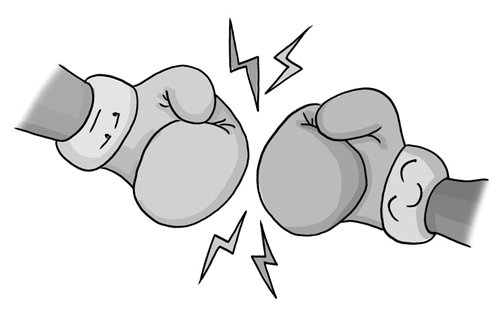By Wen Sheng Source:Global Times

Although the US and Chinese governments both claimed they are nearer to clinching a trade deal and putting a year-long tariff war behind them, the world probably has to wait for a few more weeks, if not months, before the two superpowers sit down and put ink on paper. The world ought to have the patience to see how the protracted tussle will play out.
US President Donald Trump said the upcoming trade pact between Washington and Beijing will be “epic” and “historic,” and he has more than once anticipated a grand signing ceremony attended by leaders of the two largest economies. It is reasonably assumed that Trump wants the pomp to display to his domestic electorate that he can deliver this “epic” deal.
Trump, a veteran businessman and once a political novice, has become an increasingly experienced politician. With the next US presidential election 18 months away, Trump senses he has adequate time to prolong the high-profile trade negotiations so that he can seek more compromises from China. That explains why a senior trade official from the White House said the Trump administration remains “not satisfied” with the latest round of talks in Washington; it wants to extract more concessions from China.
President Trump himself touted to the press an eventual deal with Beijing might be “four to six weeks” away. But don’t count on this prediction, as few in the US and even his own administration know what is really in his mind. He is very good at gimmicks. With the 2020 presidential campaign scheduled to start in the fall of 2019, the world should look at Trump’s thoughts and actions through the lens of American bipartisan politics.
After two years in the Oval Office, he has become more combative and skilled at all types of games through coercing, threatening, baffling and defrauding his rivals. He labels the mainstream American news organizations critical of him as “fake news,” an unprecedented smear on the press by a US president.
In 2016, Trump chose tax cuts, immigration reform, and the trade balance as his signature campaign pledges to his supporters. Tax cuts have been implemented, benefiting the US economy. However, he is stuck in building his dream wall on the border with Mexico, facing fierce opposition from Democrats. On the trade front, he is looking forward to a very successful China deal, preferably one signed prior to his official reelection campaign kick-off so as to give him a significant boost.
One precondition for the opportune timing of Trump’s deal is that the US economy doesn’t lose steam or suddenly deteriorate in Q2 and Q3 of this year. It is a broad consensus that the US and China’s punitive tariffs on a gross $360 billion of each other’s goods have whipsawed markets and disrupted supply chains on a global scale. US economic growth should have been stronger had the “self-inflicted” wound of the massive trade conflict not been there.
Therefore, Trump is in no hurry to rush a trade deal. Larry Kudlow, Trump’s top economic advisor, said that the US and China are “closer and closer” to a deal. As to the specifics, the text of an agreement covering trade balance and enforcement, technology transfers, IPR protection, non-tariff measures, agriculture, services trade and currency exchange rates has been read and reviewed many times.
Some media reported that the US wants to keep some of the existing punitive tariffs on Chinese imports in order to put continuous pressure on China. This will certainly be rebutted by Beijing, because the request lacks goodwill and runs against the principle of reciprocity.
Is China overly concerned about US-imposed trade tariffs? Not exactly. Recently, the IMF raised its gauge for China’s 2019 GDP growth rate from 6.2 percent to 6.3 percent, compared to 2.3 percent growth for the US. And Chinese officials and economists are confident of China’s economic resilience, as a sizable stimulus package is being launched. As a result, China’s stock market has rallied more than 30 percent this year.
The Trump administration has been calling for China to undergo structural reform by whipping state-owned businesses. But in the 1990s, the government overhauled its state-owned sector, which saw tens of millions of workers dismissed. Outsiders always think of China as a draconian state-driven model, but the government has been encouraging market approaches and letting the market play an increasingly bigger role in the economy. The private sector has grown significantly, and private companies, including Huawei, JD and Alibaba, have already become the biggest drivers of growth and innovation.
The author is an editor with the Global Times. bizopinion@globaltimes.com.cn
Newspaper headline: Trade war truce may have to wait as Trump’s ‘epic’ deal tied to reelection calculation
